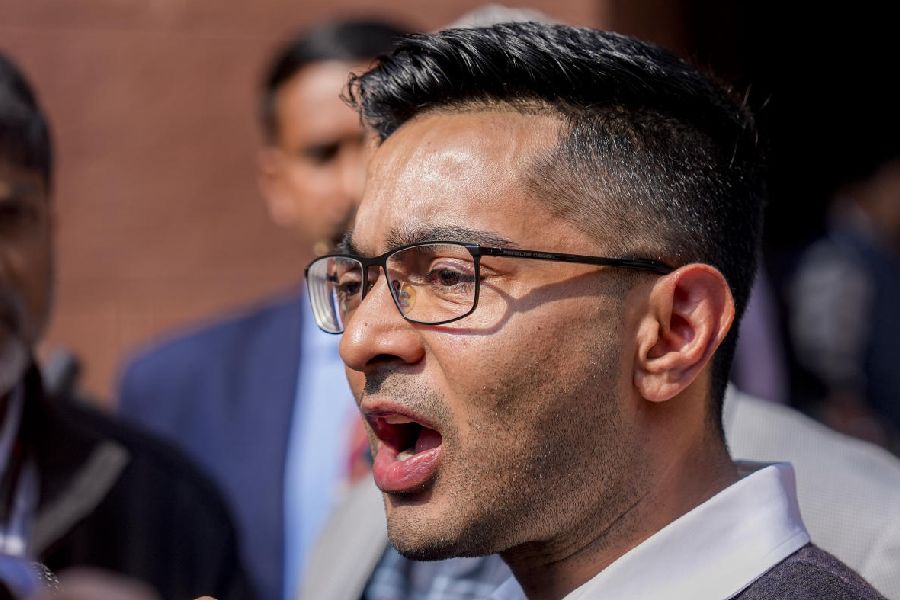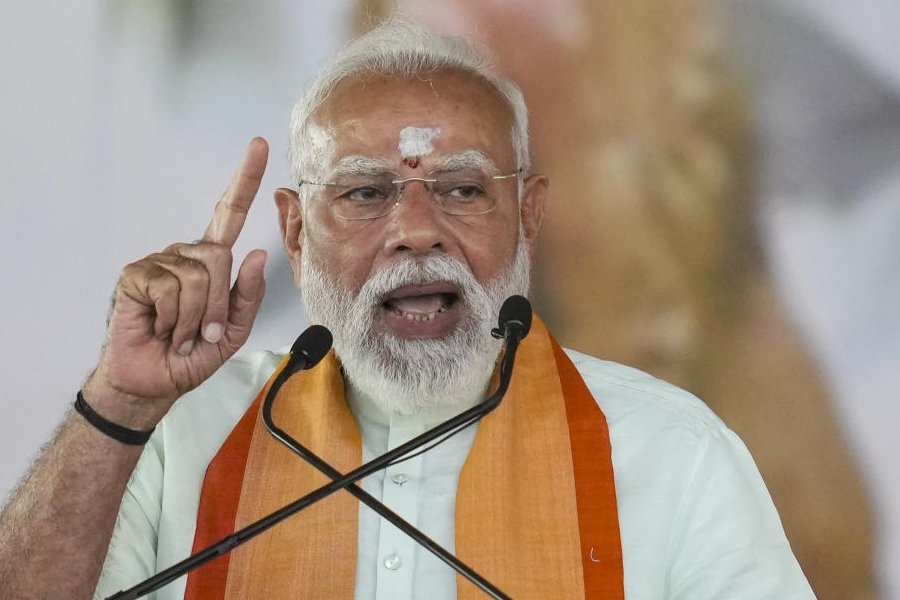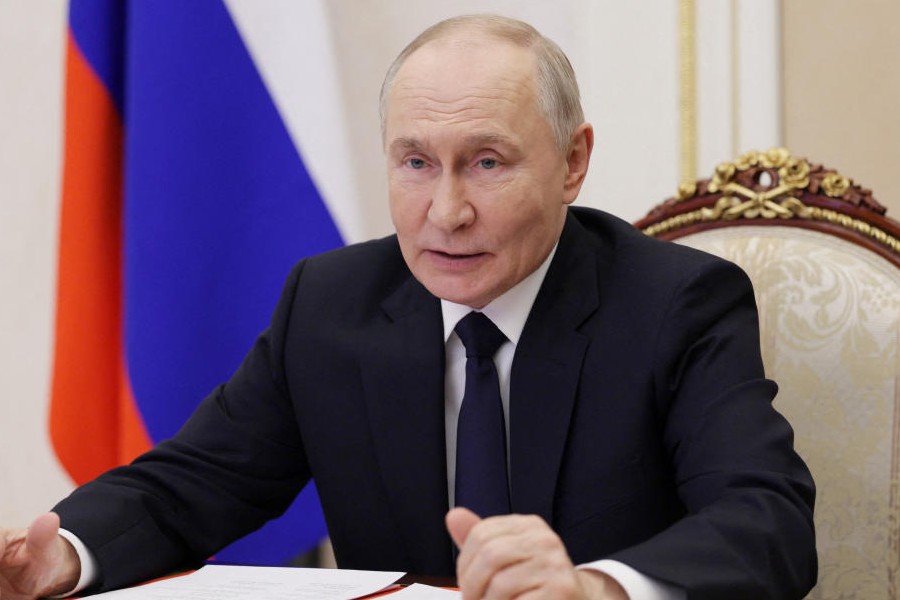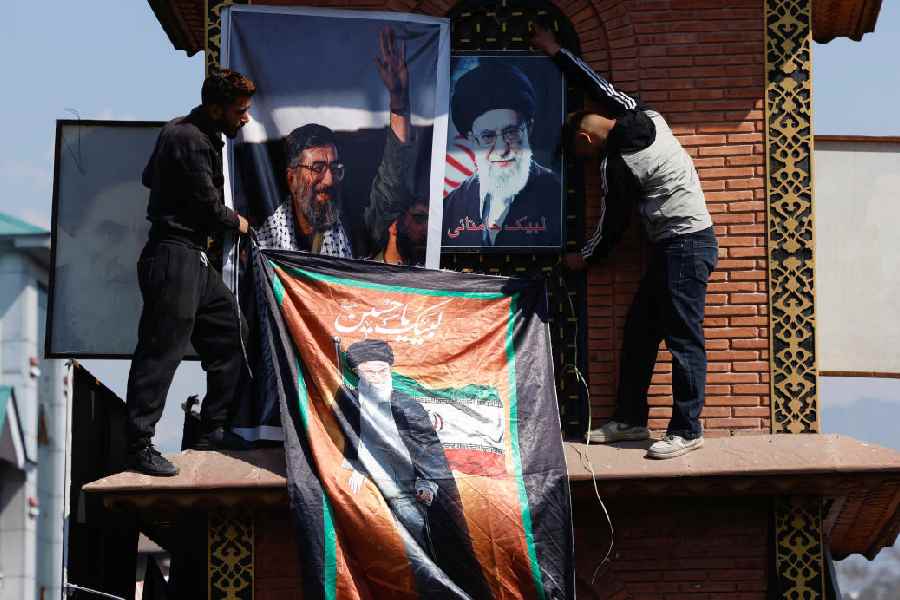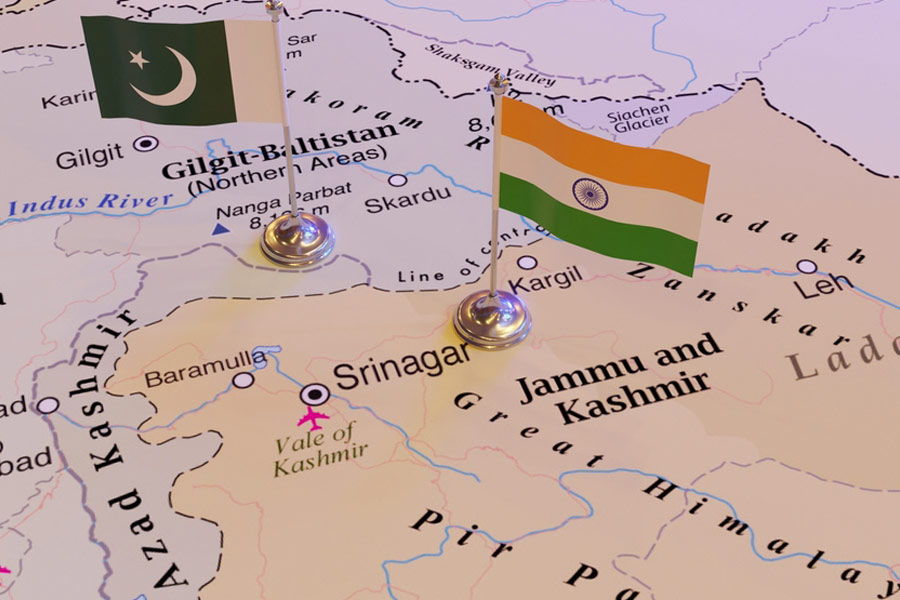New Delhi, Feb. 14: Shaina NC is a friend of Shah Rukh Khan. But on February 6, when the young fashion designer hosted a special screening of My Name is Khan here, a week before the film’s release, the gesture was meant less to cheer the actor and more to make a point within “acceptable” limits to her party, the BJP, and its ideological soulmate, the Shiv Sena.
“If you don’t agree with someone, you don’t demand a ban on his works or create a ruckus. The Sena’s name-calling of SRK is unjustified,” stressed the 37-year old Shaina, who lives in Mumbai and is a BJP spokesperson in Maharashtra.
No BJP leader, not even party chief Nitin Gadkari — who was in New Delhi that Saturday and had just a day before contested the Sena’s position — L.K. Advani, Sushma Swaraj or Arun Jaitley showed up for the screening. That did not deter Shaina from proving that if she was persuaded by the merits of an issue, she would stick up for it.
The Vishwa Hindu Parishad (VHP) and the Bajrang Dal be damned. “I don’t think you are unwelcome in the BJP if you do not belong to the larger fraternity,” she said by way of an explanation.
Shaina is among the BJP’s young women who are not entirely comfortable with the party’s ideology but not afraid to ask questions. The liberal sorority, which has no problem wearing trousers and skirts, is unapologetic about Page 3 appearances, speaks a de-Sanskritised Hindi that was unacceptable to the RSS and the BJP until recently, and wonders why women still got the short shrift, is growing.
This section is impatient with the sort of issues that still agitates the preceding generation of women, represented by Sushma Swaraj, Sumitra Mahajan and Jaywantiben Mehta. The contrast was underlined when Sumitra, the Lok Sabha MP from Indore for a decade, led a women’s delegation to the President to seek a ban on Draupadi, a novel by an Andhra writer, because of its “bawdy” passages on the same day Shaina defied the Sena’s diktat against SRK.
The young women are offspring of the post-Ramjanmbahoomi-Babri era and the principal beneficiaries of economic liberalisation. So while Atal Bihari Vajpayee and Advani are on the “must mention” list of their BJP icons, Narendra Modi also gets a big thumbs-up as an “exemplar of governance and decisive leadership”.
Vani Tripathi is one of them. “Ban is a curse word in my dictionary,” said Vani, a theatre and TV actor and a secretary of the youth wing. On artist M.F. Husain’s unofficial deportation after the Bajrang Dal and VHP banned the exhibition of his paintings, Vani feels the “issue needs immediate resolution”. But what if it offends the VHP? “I have no connect with them and, therefore, no opinion on them either,” she says baldly.
That Shaina and Vani come from liberal backgrounds and have non-political options to fall back on has made it easier for them to be relatively objective. “For me, being an MP and MLA is not the be-all and end-all. If I reach a dead-end in the BJP, I will call it a day,” said Shaina, who is nursing the South Mumbai Lok Sabha seat for 2014.
Vani counts playwrights Ebrahim Alkazi, Mohan Rakesh and Vijay Tendulkar as her “intellectual influences” and is clear about her expectations from the BJP: “If I were to come up with a reform blueprint for the BJP’s youths, I will ask them to concentrate more on mobilising opinion for the good work we have done instead of looking back on the past for inspiration,” Vani says.
Shobha Karandlaje, Kiran Maheshwari and Saroj Pandey inhabit a different space, but don’t think differently from Vani and Shaina. Shobha, a Karnataka MLA, said: “Cultural policing and vigilantism are not on. We live in a democracy, we have an excellent judiciary, so why should people take law into their hands?”
Shobha, who had to quit as minister after the Bellary brothers publicly spoke of her alleged relationship with chief minister B.S. Yeddyurappa, is critical of the anti-pub campaign in her state. “Agreed, pubs are not part of Indian culture. But if a youngster’s family has no problem in him or her going there, why should the Rama Sene (blamed for the attack on women in a Mangalore pub last year) bother?”
But have the GeNext women influenced the BJP’s thinking on an issue? Kiran Maheshwari, a Rajasthan MLA and head of the Mahila Morcha, is realistic: “I came in without male support. I grew up in a small town where politics was the only space to engage with people. But having got a break, I constantly worked to build opinion in favour of 33 per cent reservation for women in the BJP. Finally, Rajnath Singh gave it.”
Shaina and Vani’s “outsider” status carries a double edge. As Smriti Irani, TV actor of saas-bahu fame, painfully realised. In 2004, when the BJP’s anti-Narendra Modi coterie sought to put him down, it used Smriti as its sounding board and a voluble one at that. On TV, Smriti demanded that Modi should resign as chief minister to “salvage the BJP and Gujarat’s prestige”. If he didn’t, she threatened to fast unto death from Vajpayee’s birthday on December 25. The actor got an earful from Advani and Gujarat leaders, after which she promptly recanted.
Had Smriti been a “home-grown” member — that is to say from the RSS or its cohorts — sources said she might have been taken seriously, or at least not been berated. Think of Uma Bharti and her insurrections until she became unbearable to some, and the difference is obvious.
Kiran explains what separates individuals like her from Smriti and Shaina: “I have done the gamut (of work), from being a councillor to heading a women’s coop- erative bank and being a district party president. Politics may be a fashionable pastime for some. For me, it’s a commitment. I am from the organisation that keeps the party together. If there’s no organisation, there’s no party. Those like Smriti have their use in a campaign because they draw the crowd.”
 |


